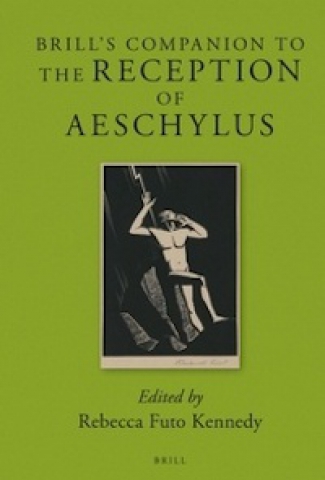
Pp. 488-508 in Brill's Companion to the Reception of Aeschylus (Rebecca F. Kennedy, ed.)
This chapter offers a broad survey of nearly fifty Spanish American receptions (in translation, adaptation, and re-performance) of the seven extant plays of Aeschylus since the nineteenth century. The approach is expository and panoptic, rather than interpretive, and the chapter is subdivided into four subsections covering the Oresteia, Seven against Thebes, Persians and Suppliants, and Prometheus Bound, with texts within each subsection grouped geographically and chronologically. The coverage of the Oresteia opens with treatments of nineteen Mexican and Argentine adaptations from 1930-2006, leading into a discussion of Oresteia-inspired literature from Cuba, Ecuador, Colombia, the Dominican Republic, and Chile. Anton Arrufat’s Cuban adaptation of Seven against Thebes is the focus of the subsequent section. The one that follows laments the absence of Latin American receptions of Suppliants, but proposes two lesser-known Cuban plays over a century apart as noteworthy receptions of Persians. The final section treats eleven adaptations of Aeschylus’ Prometheus from Cuba, Bolivia, Peru, Mexico, the Dominican Republic, Chile, Argentine, and Ecuador, between 1880-2009. Three trends emerge from this survey of Aeschylean receptions: the majority of authors adapt Aeschylean myth in order to reflect on the cultural/political issues of their time (social class, gender and sexuality, technological progress, urban violence, political corruption, foreign invasion, nationalism, and tyranny, among others); many authors fuse Classical and indigenous myths in order to forge a new national literary identity, particularly in Mexico; finally, many authors choose to rewrite Aeschylean characters, especially Orestes and Prometheus, in Christian terms.
